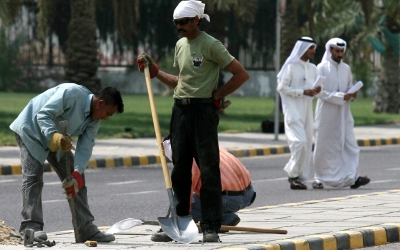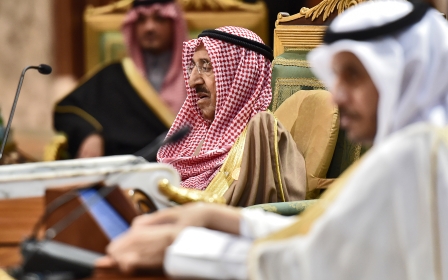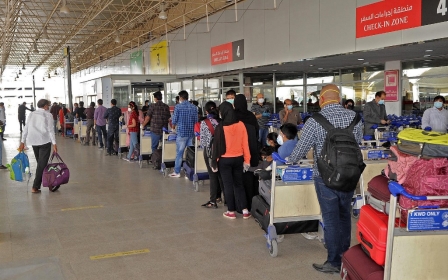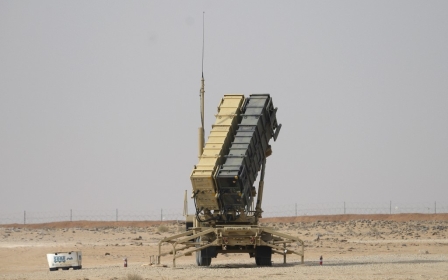Kuwait's 91-year-old emir travels to US for medical treatment
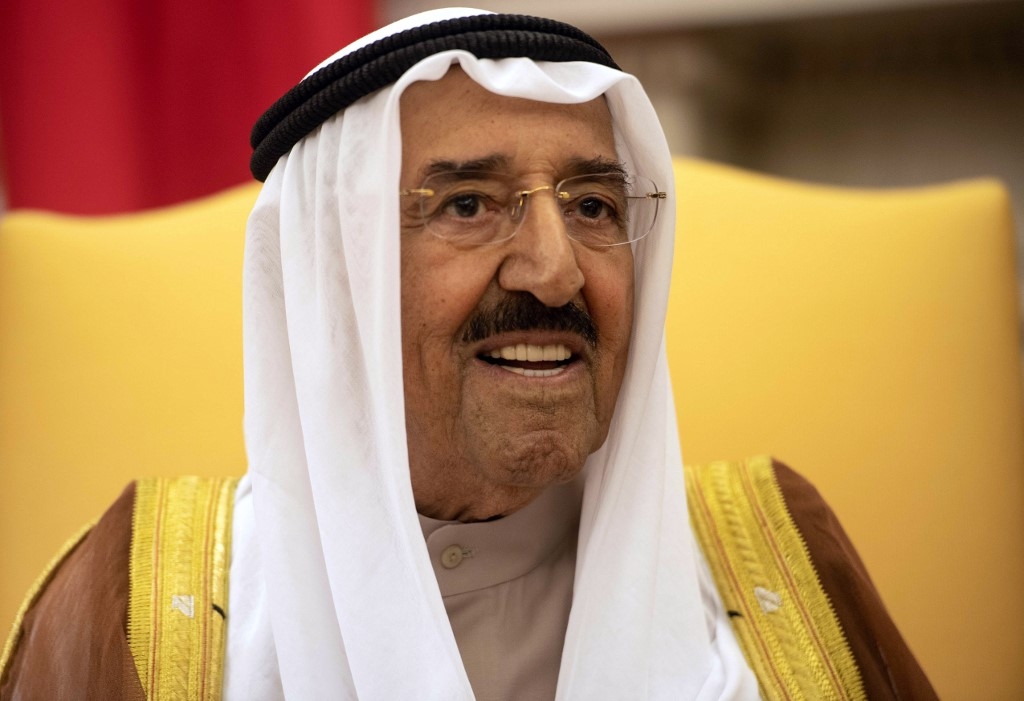
Kuwait's 91-year-old ruler travelled to the United States on Thursday to seek further medical care after recently undergoing surgery, state news agency Kuna reported.
Sheikh Sabah al-Ahmad al-Sabah "left the country today at dawn to go to the United States to complete his medical treatment," his office said in a statement cited by state news agency KUNA.
Earlier, a statement from the country's royal court said that Sheikh Sabah's decision to travel was "based on advice from the medical team treating His Highness... after a successful surgical procedure".
The report did not elaborate on the emir's condition, nor the nature of the surgery and ensuing treatment.
Sheikh Sabah was hospitalised on Saturday, sparking speculation over his condition. The palace, however, said he was in "good health" at the time.
New MEE newsletter: Jerusalem Dispatch
Sign up to get the latest insights and analysis on Israel-Palestine, alongside Turkey Unpacked and other MEE newsletters
Kuwait had previously announced that the emir's half-brother, 83-year-old Crown Prince Nawaf al-Ahmad al-Sabah, had temporarily assumed some of Sheikh Sabah's powers.
According to a ministerial decree published by Kuwait Al-Youm, the country's official gazette, and seen by the Associated Press, the crown prince was empowered for "the duration of a surgical procedure until the health event is over".
In August 2019, Kuwait acknowledged that Sheikh Sabah, who has ruled the oil-rich Gulf state since 2006, suffered an unspecified medical "setback" that required him to be hospitalised.
This came after Iranian Foreign Minister Mohammad Javad Zarif, on a visit to Kuwait at the time, wrote on Twitter that he was "praying for Emir's speedy recovery", without giving further details.
Later that year, the emir underwent medical tests shortly after arriving in the US, leading to a meeting with President Donald Trump being called off.
Widely seen as the architect of modern Kuwait's foreign policy, Sheikh Sabah has pushed for diplomacy to solve regional issues, including a boycott imposed on Qatar by its neighbours Saudi Arabia, the United Arab Emirates, Egypt and Bahrain.
The emir has also called for a de-escalation in the Gulf as tensions between the US and Iran continued to rise last year, amid a surge of tit-for-tat attacks in and around the Strait of Hormuz, the strategic waterway through which passes almost a fifth of the world's oil - and most of Kuwait's.
Middle East Eye delivers independent and unrivalled coverage and analysis of the Middle East, North Africa and beyond. To learn more about republishing this content and the associated fees, please fill out this form. More about MEE can be found here.


